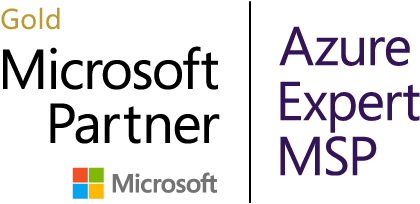
Mergers and Acquisitions (M&A) play a significant role in operational and financial growth in the healthcare industry. In addition, M&A activities provide an opportunity of achieving greater efficiency of services provided by merging different IT systems of acquired entities into one organization-wide unified system. Operating more cost-efficiently has been a key driver for healthcare technology managers to consider data center consolidation as a way toward higher operational efficiencies.
The M&A cloud advantage for the Healthcare Industry
The cloud has proven to be an effective way for companies that are merging with each other to enable their IT departments to meet the new challenges they face, such as increased infrastructure costs and security concerns. This is where a cloud-based healthcare solution can help reduce infrastructure setup time from months or years to weeks.
A cloud-based solution provides key advantages over on-premises solutions in terms of providing real-time information access across various facilities, keeping personnel safe by being proactive instead of reactive in case of emergencies, and reducing response times by acting immediately across multiple facilities. The cloud also allows organizations to quickly deploy applications and provide an overall end-user experience that employees will find familiar and intuitive, which improves the overall user adoption and increased productivity.
Cloud applications also enable remote and/or outsourced IT departments. By outsourcing key operations to a third party, healthcare organizations are also able to reduce their internal IT operations costs while increasing service levels for core clinical applications. In many cases this is done by utilizing existing services that the merged organization already has paid for and leveraging them to achieve immediate cost savings.
Microsoft Azure as an IT solution for mergers and acquisitions
In the case of acquisition between two hospitals, each hospital may use different applications for similar functions across departments such as finance or human resources. Healthcare IT decision-makers should consider taking advantage of Microsoft Azure cloud services because it offers tremendous benefits when consolidating these heterogeneous application portfolios and can help healthcare organizations meet their goals by:
- Consolidating application pools and reducing I/O overhead for data sharing
- Enabling efficient collaboration with external entities such as payers, physicians, and patients
- Improving decision-making capabilities through analytics and predictive insights
Azure can consolidate multiple applications in a single IT environment that is cost-effective and easily accessed from anywhere using any device. As cloud usage continues to accelerate in healthcare organizations of all types and sizes, Azure has emerged as the ideal platform for the movement because it provides:
- A hybrid deployment model where services are constantly available at local sites while also backed up in Azure, so data is always protected even if primary systems fail
- Compute resources ranging from IaaS to SaaS along with robust services such as machine learning and AI
- Full integration with the full Microsoft 365 suite of products including Dynamics 365 for Finance and Operations, PowerApps, Flow, and Sharepoint Online
- An open ecosystem for building best-in-class custom applications that work in concert with each other to rapidly create new business value
- A single global cohesive platform built on a secure foundation of enterprise-grade infrastructure
Azure’s take on security for healthcare M&As
When processes involve external entities such as payers, physicians, and patients (e.g., eligibility verification), healthcare providers need to maintain a high level of security. At the same time, they also need access to contextual information that is scattered across multiple repositories.
Security during a merger and acquisition is extensive and requires a comprehensive plan. The reasons for this massive undertaking are compliance requirements and the protection of both patient privacy and Personal Identifiable Information (PII).
A hybrid model can be implemented that uses on-premises resources combined with the Azure cloud infrastructure to manage healthcare data safely. This ensures compliance requirements are met while accommodating access to contextual information that is scattered across multiple repositories within the organization.
The Azure benefit for healthcare providers
Azure can benefit healthcare providers during mergers and acquisitions by offering more efficient and scalable data sharing between applications and business units. With improvements to collaboration with external entities such as payers, physicians, and patients, workflows can be improved, and an organization can realize cost savings.
To learn more about how Azure can help during a merger and acquisition, speak to an expert at Hanu today!



